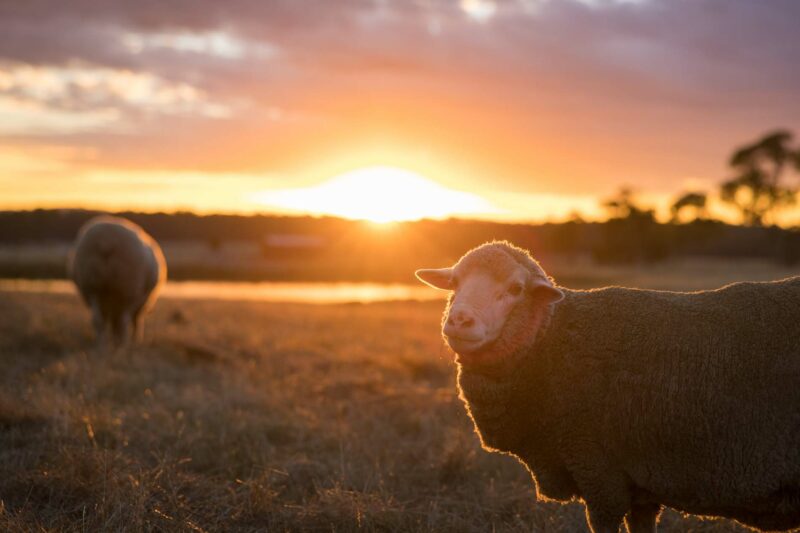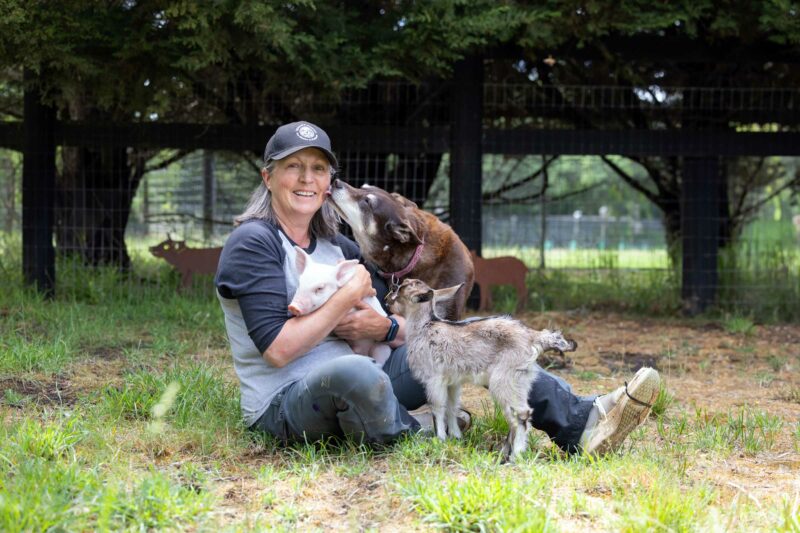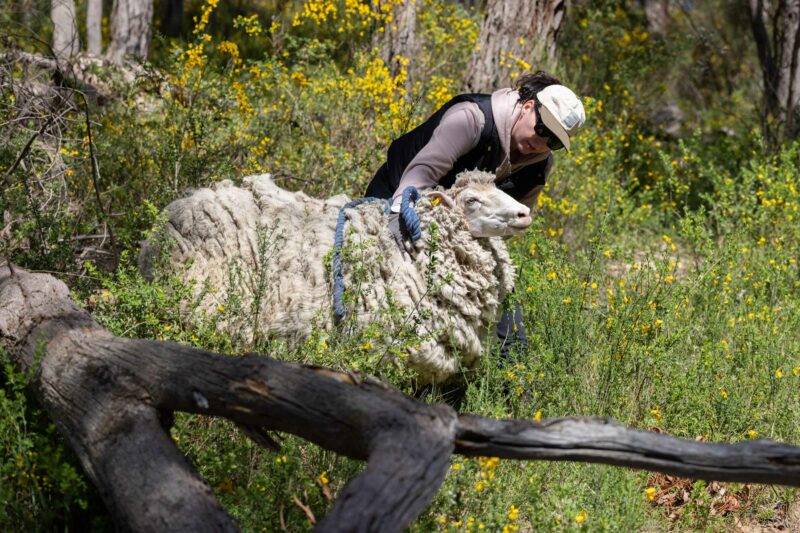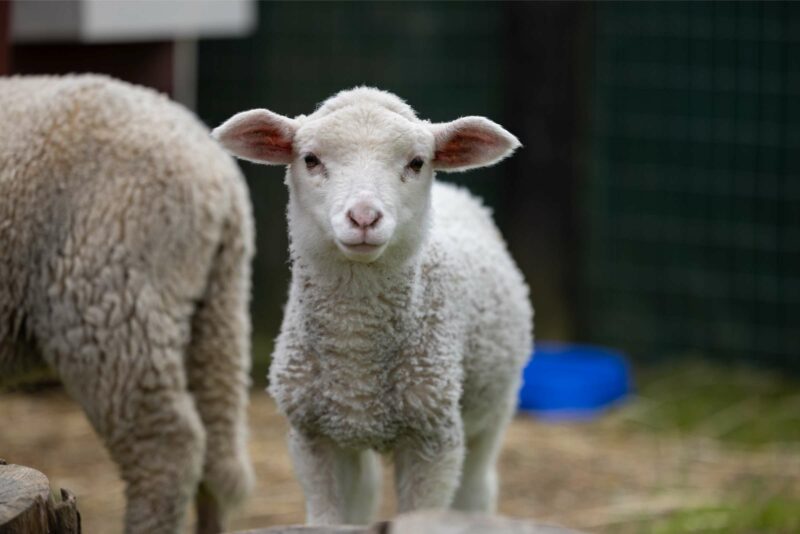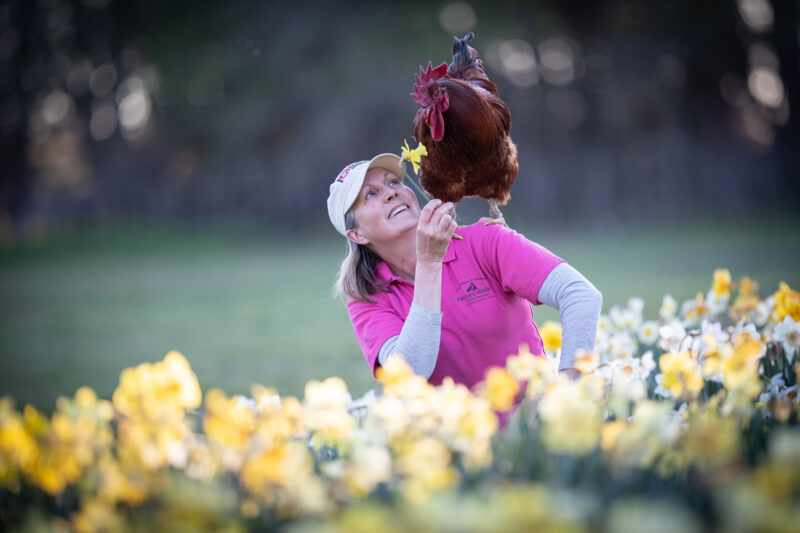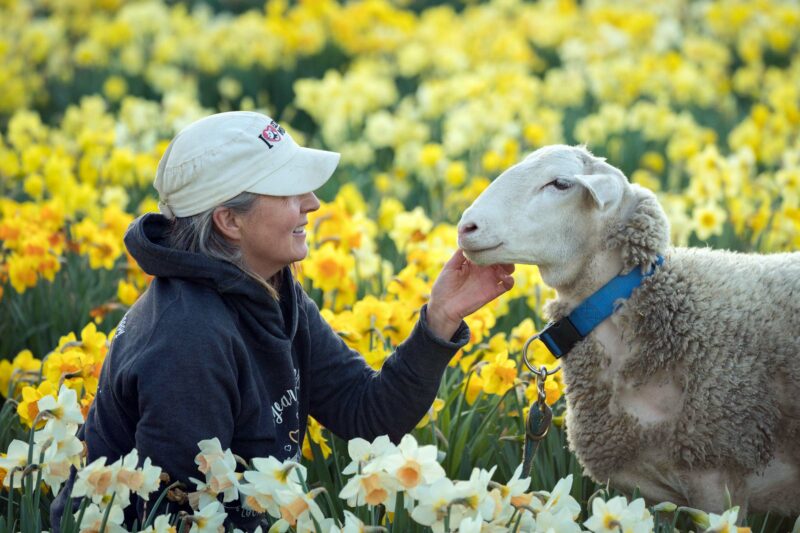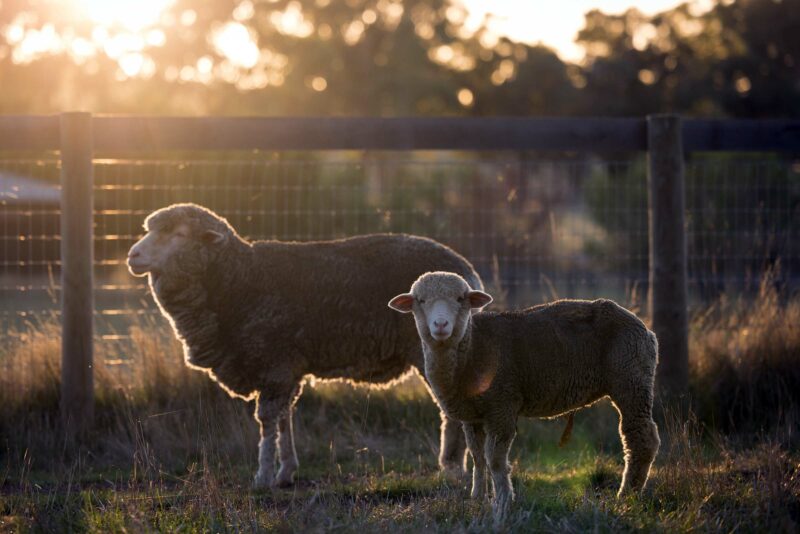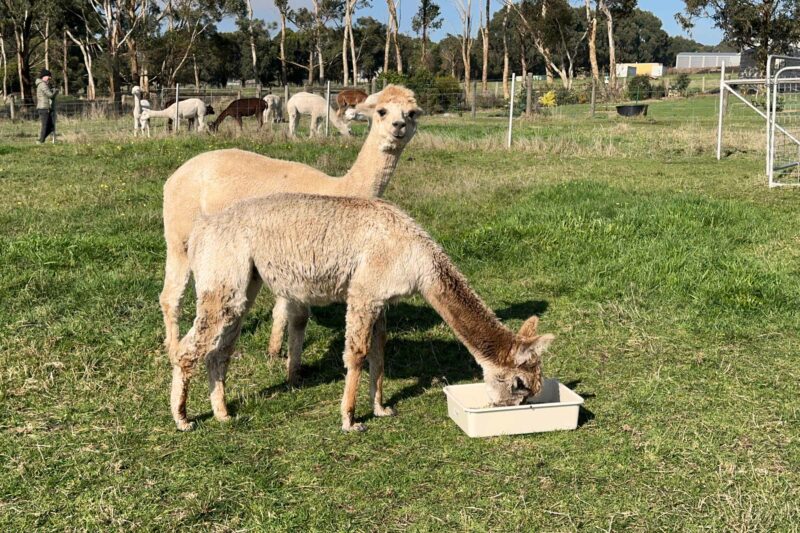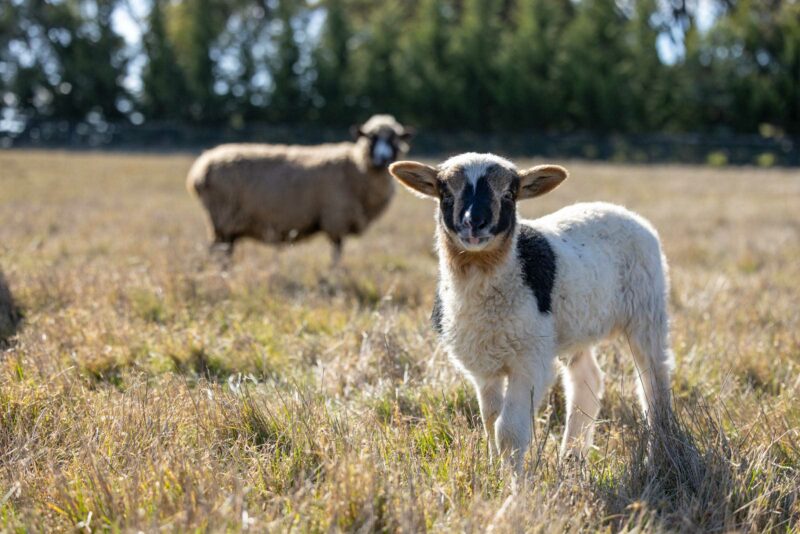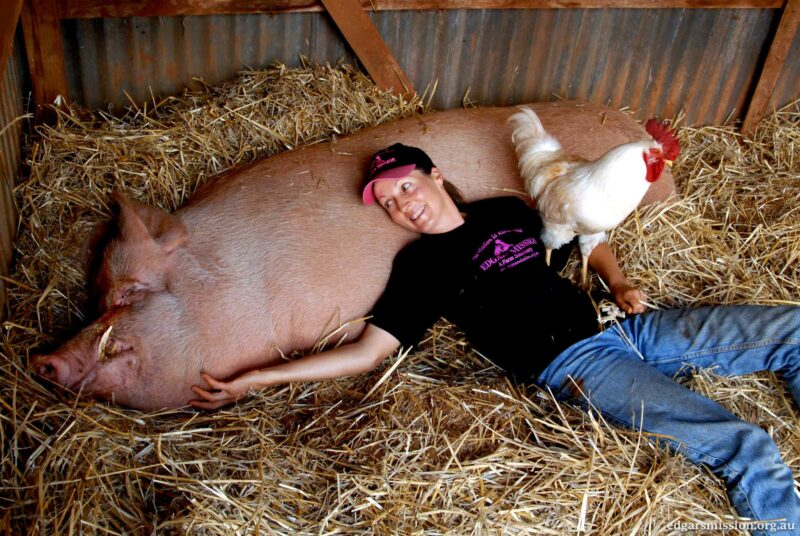
They speak in tongues we cannot understand; their cries fall on deaf hearts, yet their plea is always the same, “Why?”
It was more than profound that the heavy wooden yokes we cut from the necks of a recently arrived herd of Boer goats, perfectly formed the letter ‘Y’. For ‘why’ must be a word that runs constantly through the minds of animals. “Why are you doing this to me? I don’t understand why you want to hurt me/take my babies away/lock me away so I cannot move or do any of the things that are important to me.”
Placed on the goats in an attempt to curb their happy wanderings through fences and held in place with wire and hose tubing, the yokes failed to achieve their goal but what they did leave in their wake were hairless patches of well-worn skin and sores on the necks of the hapless animals. So long had been their burden that the wood had been worn smooth, constantly caressed by the animals’ fur and bathed in their oils.
Throughout the ages, animals have suffered the vagaries of we humans. However, every now and then a brave heart in the wilderness proffered a cached thought of kindness, yet man held firm the view that his superiority justified his treatment of animals. Their suffering, shortened and often impoverished lives are the sad casualty of this thought.
Thankfully a groundswell of conscience is moving many to accept that our current treatment of animals is anything but just. The catalyst of this has a lot to do with people challenging long held beliefs and values, many of which have been inherited from others and never really thought about. Propelled by science and interactions with the animals we farm for food and fibre, stalled are the thoughts that animals are in themselves a means to our end.
Coming to the fore is the knowledge that animals are unique individuals, charged with emotional worlds and creatures who have interests in their lives akin to our interests in our own lives. Looking into the eyes of kindly cows, gregarious goats and personable pigs can touch the soul like no other, causing one to ask the simple question, “Why? Why do we do the things to animals that we do?”
We are architects of the world in which we (and they) live and although many may argue the right to farm and that man has always made use of animals, we have a duty to be humane.
Indeed we can remove more than yokes from the necks of hapless animals when we come to see them as ‘someone’ and not only as ‘something’. For when we do so, we can live in a non-violent world where our actions mirror our kindly tenets of compassion and mercy.
Given the plethora of foods, fibres and everyday goods that do not involve animals, it is now time to ask ourselves why? – “If we could live happy and healthy lives without harming others, why wouldn’t we?”
